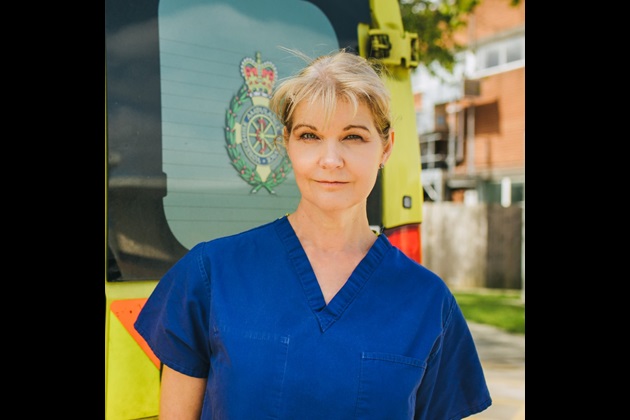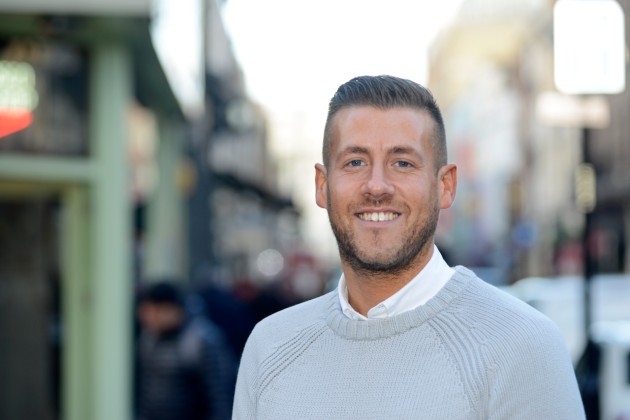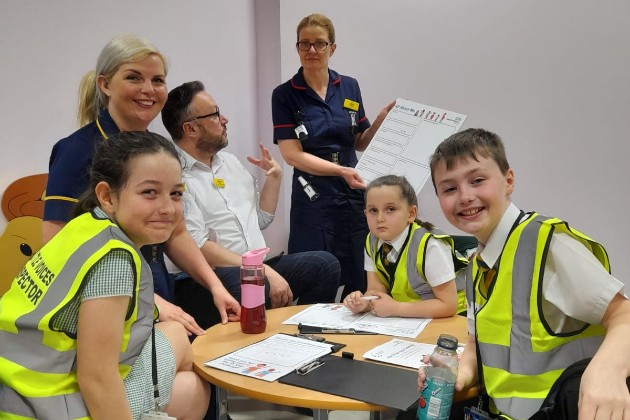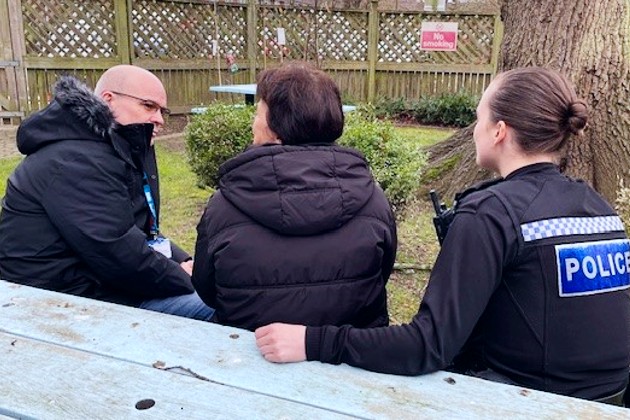It’s been a year since critical care nurse Dawn Bilbrough’s emotional plea to panic buyers went viral. Exhausted after long shifts caring for patients and preparing for the impact of COVID-19, her video urging people to stop stockpiling became a pivotal moment in the public’s understanding of what nurses were facing.
Twelve months on, she talks to RCN Bulletin about the toll the pandemic has taken on her and how it’s shifted perceptions of the profession.
“I remember the day I recorded the video so vividly. I’d just finished four 12-hour shifts and went to the supermarket on my day off to buy food for batch cooking. I walked in and turned right as I always do, expecting to find fresh fruit and vegetables. But there was barely anything there. Just a bag of apples. That was it.
“I walked around in a daze, occasionally catching other people’s eyes. We were all a bit stunned and I had to rethink what to buy. I went back to my car and thought ‘oh wow’. The magnitude of what was happening hit me and I recorded the video. I didn’t look back at it; didn’t check what I said or how I said it. I just needed to get it out there. I shared it on Facebook, and it snowballed from there.
The magnitude of what was happening hit me and I recorded the video
“Within a couple of hours local newspapers and TV stations were calling me, then that night I got a phone call from ITV’s This Morning asking me to be on the show the next day. I said I couldn’t because I’d be working, but they convinced me to do a live link outside the hospital in my scrubs. That morning, I woke up to the sound of my own voice on the radio. It was surreal.”
More than 650,000 people have viewed Dawn’s video on Facebook in which she breaks down in frustration at the panic buying. “You just need to stop it,” she pleads, “because it’s people like me who are going to be looking after you when you’re at your lowest.”
Four days after recording the video, lockdown was declared.
“I’m not sure what motivated me to share it. I was just so tired and distressed, and genuinely worried about how I would be able to eat well to keep my immunity up. We had no idea what was coming really, but I knew it was going to be big. I needed to be healthy and strong so I could continue to work at that level, and my goodness we could never have foreseen the level at which we would be expected to work.”
A very different workplace
Shortly after recording the video, Dawn became ill with COVID-19 and took three weeks off work. “When I went back it was like walking into a warzone. There were people and patients everywhere. So much noise and so much stress. Usually in intensive care, if your patient needs specialist treatment, you get it for them. But all of a sudden, those specialists weren’t there.
“You were totally responsible for your patient – and not just your patient – up to three patients at a time, which was unheard of in intensive care. Then, of course, you were supervising these wonderful nurses who came to help from other areas. But they were terrified, totally out of their comfort zone. I felt overwhelmed every shift.
“I’ve never needed to prioritise so much in my career. We were fighting fires everywhere. I was constantly reassessing who I needed to go to first, who could wait a little longer for my attention, who might hold out until I was there. These were seriously ill patients. They came to critical care for a reason. We should never be forced into making those decisions.
“Each day, I turned up to work with palpitations not knowing what I would face. Patients weren’t responding to treatments and they couldn’t have their family in. It was traumatic and so difficult to put into words. Unless you’ve lived through it, you can’t describe how horrendous it’s been.”
I’ve never needed to prioritise so much in my career. We were fighting fires everywhere
Taking its toll
Now, coming out of the second wave of COVID-19, Dawn is seeing less people in the acute phase of illness, but is still treating many long-term patients. The ongoing strain is taking its toll.
“I just feel so tired all the time,” she says. “Even when I have downtime, I feel totally washed out. And there’s a little part of me that’s relieved that I can’t do what I normally do – going to the gym and seeing friends – because I don’t have the energy. I’m trying to remain positive – we have the vaccine now and spring is here – but sometimes there’s just this overwhelming sense of sadness.”
I’ve had to keep my emotions in check, be professional and hold it together, then come home and try to heal myself
The second wave of the pandemic has also brought different challenges. “It’s been much worse,” says Dawn. “We seemed to experience more deaths. There have been more younger people and women. It’s been quite shocking, and it’s tested my coping mechanisms. Usually in intensive care, people are with us for a short period, they’re sedated and ventilated, but we help them get well, awake and breathing for themselves and they move on to the wards.
“But with the latest wave of COVID patients, they’ve come to us for extra support with their breathing and have been on the unit for two to three weeks sometimes without being ventilated. In that time, we’ve got to know them, their likes and dislikes, their future dreams. Then they deteriorate, end up on ventilators, and don’t come off. They’re dying and that’s so tough, because we’re not used to developing those intense relationships over a longer period of time.
“After the first wave, I had a personal bereavement. It wasn’t COVID-related, but grief was grief. It’s been hard trying to put that in a box, go to work and experience so many deaths each day. I’ve had to keep my emotions in check, be professional and hold it together, then come home and try to heal myself. It’s been really hard.”
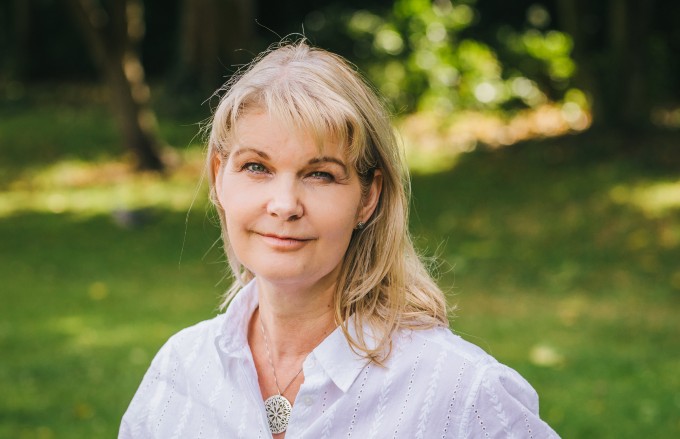
Looking long-term
For Dawn, what’s needed now is support and understanding from management that nursing staff too will need help to recover. “I think it’ll take a long time to process what we’ve been through. We might not be able to perform to the level we were pre-COVID, we might have mood swings and be unwell. There is psychological support available, but it needs to be more accessible.
“We also need to support people to recognise that they need help. There’s still hesitation and stigma to accepting that you’re vulnerable. When the pandemic first started, I was traumatised, but nobody talked about it. I remember thinking ‘is this just me, am I not strong enough to cope with this?’ But we were so incredibly busy that the adrenaline kicked in and we just got on with what we needed to do.
“There are opportunities to go and sit with psychologists, but all this time I’ve just wanted someone to come and say ‘stop, take 10 minutes, take off your PPE and just breathe’. But that hasn’t happened because there hasn’t been anybody to relieve us. It’s been a logistical nightmare trying to make sure staff can have breaks. So, we possibly are going to be affected in the long term and that needs to be OK. And actually, if you feel you are coping, then that’s OK too.”
There’s a lot of respect for nursing right now and I hope that continues beyond COVID-19
“If there’s a silver lining to the pandemic, it’s that people now have a better understanding of nursing. Prior to this, I think there was an outdated perception of nurses as handmaidens. I’ve had people say to me, are you a nurse because you couldn’t make it as a doctor? And I’ve said no, I’m a nurse because I chose to be. Nursing is the profession that is right for me.
“I’m not sure why my video went viral, but I think it happened for a reason. It’s done so much good and it gave nursing a voice. People have realised that nursing is a profession in its own right. We’re highly skilled and dedicated. There’s a lot of respect for nursing right now and I hope that continues beyond COVID-19.”
Support from the RCN
Visit our COVID-19 wellbeing pages for advice, resources and member support services.


